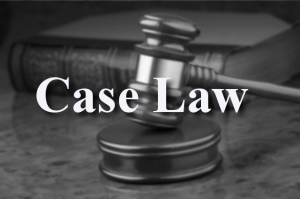 In a very interesting and somewhat unusual case the Employment Appeals Tribunal has ruled that in the case of McLintock v HSE UD1614 (2010), the employee was unfairly dismissed, however in light of all the facts no compensation was awarded.
In a very interesting and somewhat unusual case the Employment Appeals Tribunal has ruled that in the case of McLintock v HSE UD1614 (2010), the employee was unfairly dismissed, however in light of all the facts no compensation was awarded.
In the Tribunals determination, the termination of the claimant’s employment was caused by the actions of the employer in failing to apply the agreed procedures and that this constituted an unfair dismissal, as the employee was given "little choice other than to resign". However, somewhat unusually, the Tribunal also decided not to make an award of compensation to Mr. McLintock, who was investigated by auditors over the expenditure of €9,300 on a fuel card.
According to the Tribunal, “the claimant used his position to obtain the fuel card from the person in charge of those cards. This person was in a subordinate position to the claimant and would have had difficulty in refusing such a card to the latter” The Tribunal also concluded that the claimant “knew, or ought to have known, that he was not entitled to use this card for his own vehicle.”
Background
In 2005, the employee was promoted to the very senior position of Assistant National Director for the HSE with responsibility for finance and HR in 26 counties. There was an issue with his travel and subsistence as he was travelling from Donegal, to a new base in Kildare, and in the hearing Mr. McLintock told the Tribunal that he was assured that his increment would be accelerated to the top of the scale on the basis that he would not claim travel and subsistence from Donegal to Naas. This never took place, and in 2009, he went to a Rights Commissioner where the matter was resolved. (He was paid €27,000 after a settlement was reached)
He had a fuel card which he “used sporadically when he was not getting travel and subsistence”. The Employee claimed that in March 2010, the internal auditor phoned and “interrogated” him regarding the fuel card, and the €9,000+ in expenses he had clocked up.
He was called to what was described as a “clandestine draconian meeting” on 15th March where he was told that what he had done was deemed to be gross misconduct and that he (the HR Manager) was “going to have to suspend him with immediate effect, or he could resign”. Mr. McLintock claims that he was further informed that if he paid back the money, there would be no investigation.
A second meeting took place after fifteen minutes, where a family member (his brother) and the Head of Legal affairs were present. He was told that if the money was paid back, they could speak on his behalf to the Gardai.
The employees assertion was that the implications were enormous as he had spent 25 years getting to the top and it was “over in twenty minutes”. After the meetings, he was “in no fit state to contemplate anything.” If he did not resign, he would be suspended immediately. He felt that he would not get a fair hearing and he sent a letter of resignation.
Mr McLintock's line manager told the Tribunal that he advised him to get legal advice before submitting his resignation and that he had indicated at the meetings that he wished to resign and the witness told him he would not accept his resignation that day.
The Employer (HSE) confirmed in the hearing that there were no guidelines on the use of fuel cards, and the former Chief /Ambulance Officer, who succeeded the claimant as Deputy CAO, said that he was “shocked” that the claimant had resigned on foot of a fuel card audit.
The then Assistant National Director of HR said that he told the line manager not to let the claimant resign, but to let him take some leave to consider his options. He was unaware that the employee had attempted to retract his resignation, and also that he did not invoke the grievance procedure.
He accepted under cross-examination that no note was taken at the meetings on March 15 2010 as “they were not disciplinary meetings”.
Determination
In their determination the Tribunal noted that while management is entitled to introduce disciplinary procedures, “it is normal for HR management, or line management to implement such procedures”, it is also important for management to “ensure that this function is not usurped by other elements of her organisation.”
In the Tribunal’s view, the meetings of March 15 “can be considered in no other way than being part of the disciplinary process”, and these fell foul of normal procedural guidelines. it was the Tribunals contention that Mr McLintock was left with no alternative but to resign on foot of the allegations put to him, however once again in light of the excessive expenses he had amassed using a fuel card he was not entitled to, the tribunal did not see fit to award compensation in this case.
This case is good demonstration of the fair procedures that should be followed in any disciplinary hearing, and how employers must be mindful that convening meetings with employees where allegations are put to them can be construed as disciplinary hearings even if they do not intend them to be.
